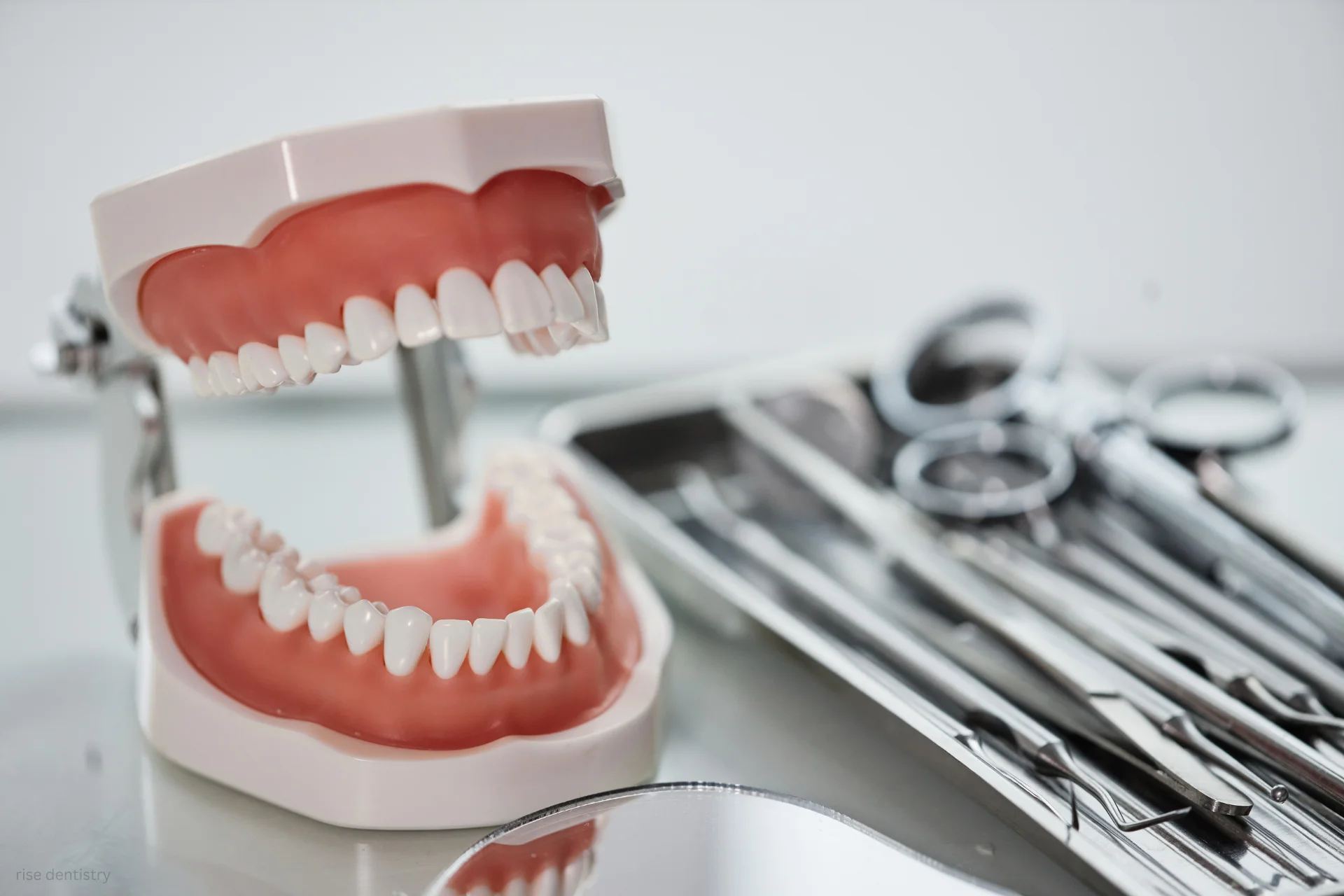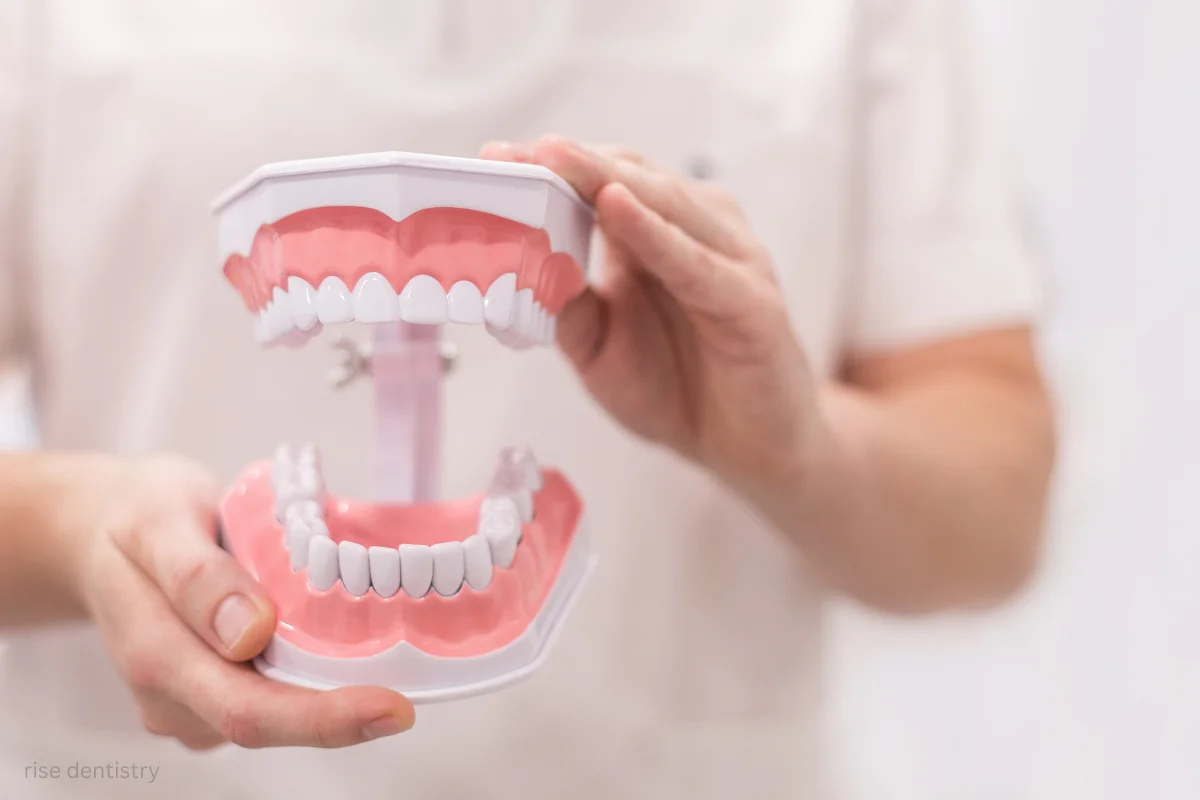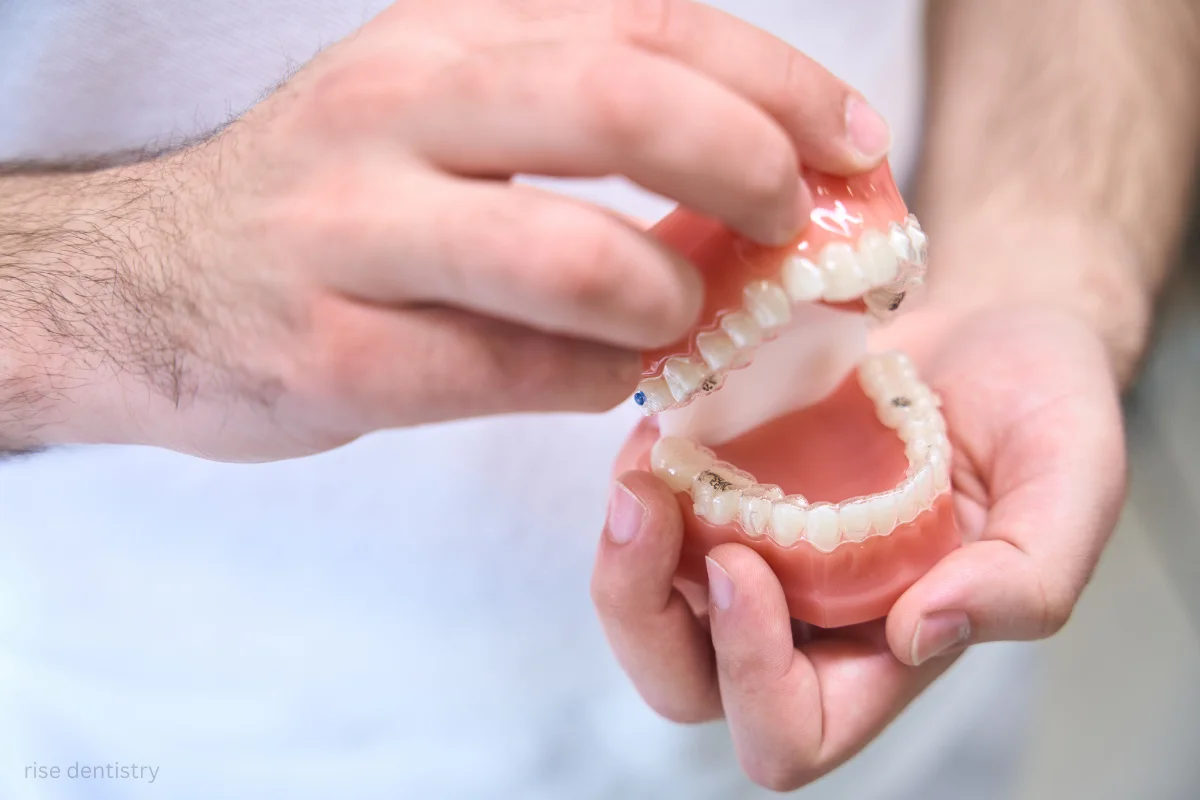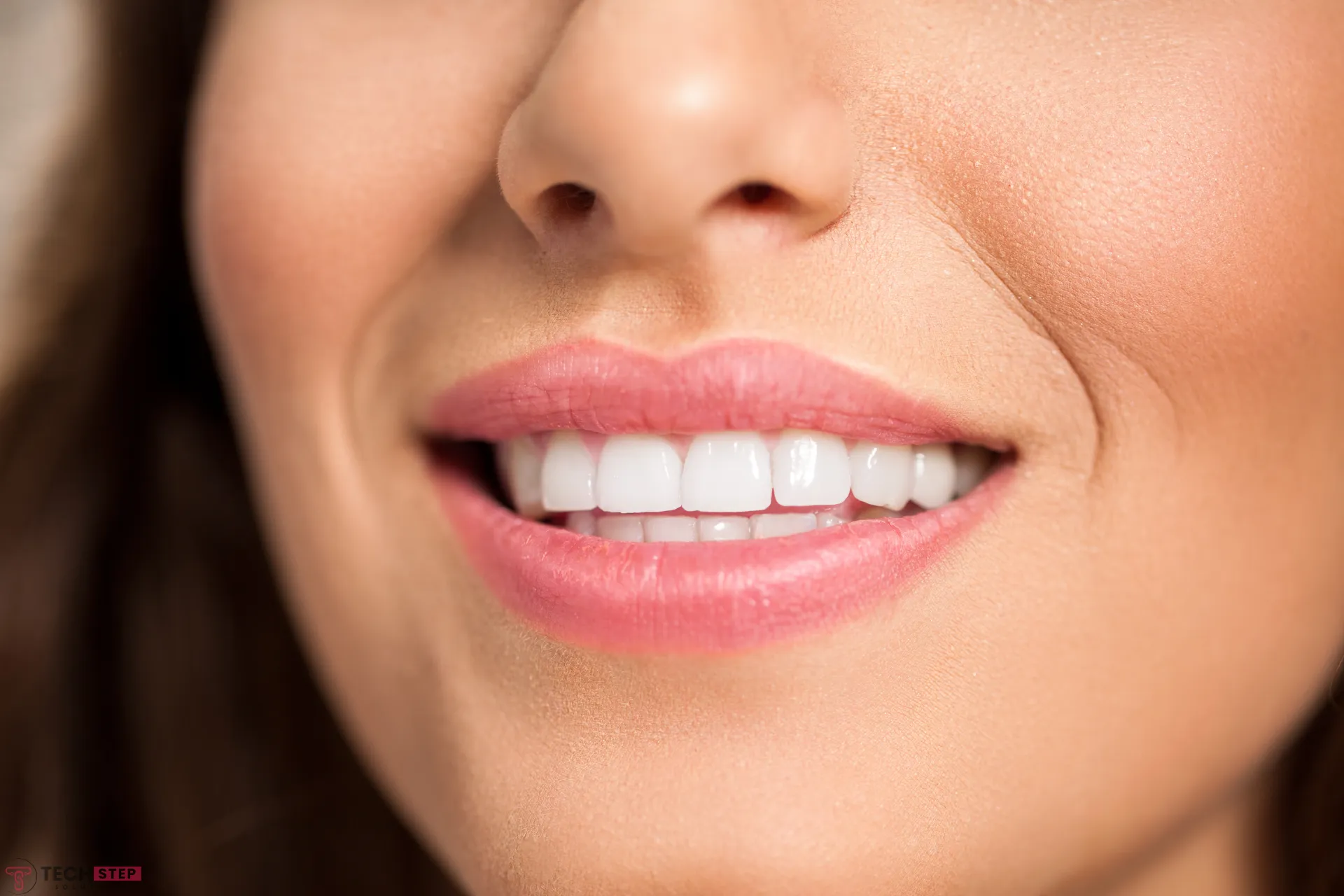
Maintenance of Dentures for Better Oral Health
Clean Every Day
Clean your dentures every day using a gentle toothbrush and a non-abrasive cleaning solution. Rinse after meals to remove bacteria and food particles.
Soak Overnight
Keep dentures in water or a denture solution at night. This prevents warping and keeps them fresh.
Prevent Gum Problems
Poor cleaning may cause odor, infection, or discomfort. A proper routine protects gums and overall oral health.
Keep Them Looking Natural
Good care helps dentures maintain the look of natural looking teeth. This keeps your smile bright and confident.
Maintain Chewing Ability
Well-maintained dentures improve chewing and help you enjoy food without issues. Poor care may reduce efficiency.
See Your Dentist Regularly
Regular visits ensure proper fit and prevent sore spots. Professional adjustments extend the life of dentures.







